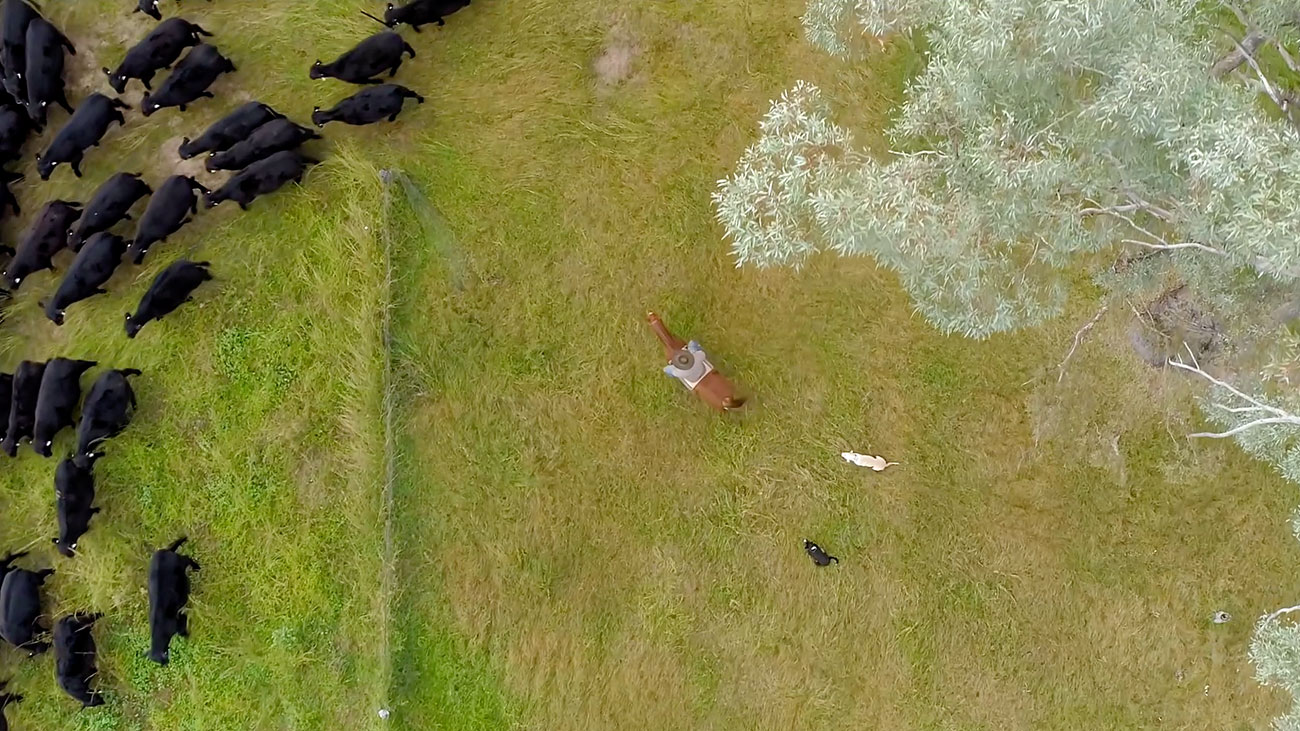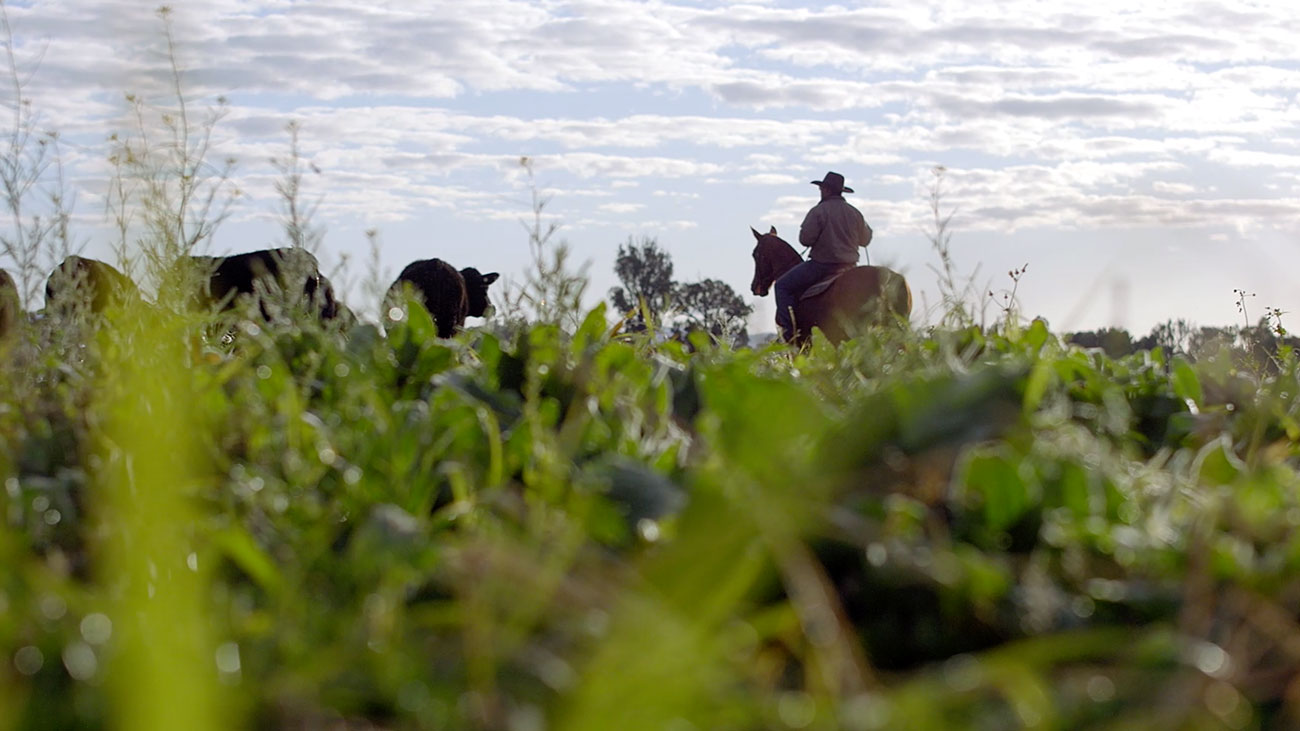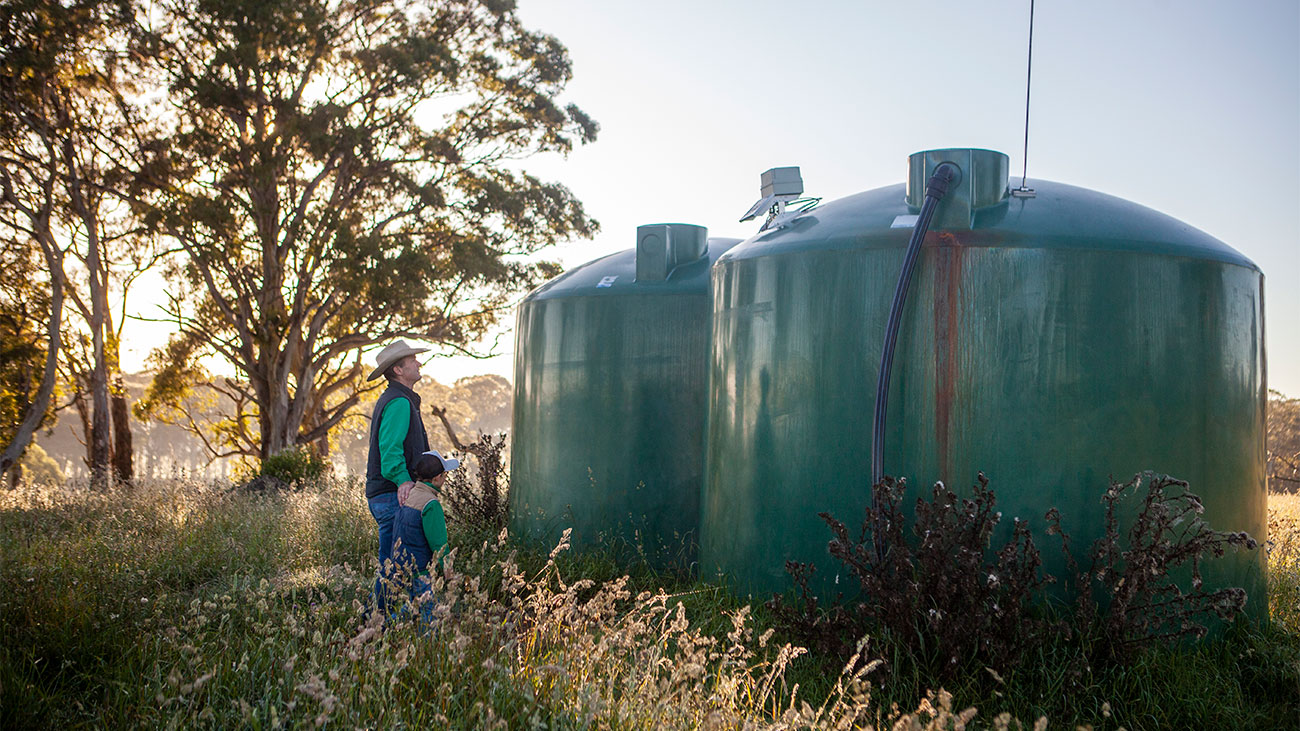PRINCIPLES
We focus on principles, not practices, that are implemented across any environment in the world.
Our transition to regenerative soil and grazing management came about as we became increasingly aware of our footprint on the environment and the need for us to play our part in climate change mitigation. In changing our approach, we have reduced the operational risk in our business, using animals rather than synthetic inputs, to restore abundance and biodiversity.
Our approach to grazing at its simplest is to manage a small number of large herds moving frequently across the landscape, grazing small areas for short periods of time and not returning for a considerable period of time.
The Grazing Principles we follow are drawn from the Resource Consulting Service (RCS) school of management and have us consider, in order of importance, planning, rest, matching stocking rate to carrying capacity, livestock psychology and welfare, animal density, and biodiversity.
Additionally, we endeavour to adhere to the RCS Soil Health principles. covering planning, maximising living plant production, soil BIOLOGY, biodiversity, groundcover, and integrating livestock.
We see the need for a shift in mindset and management approach across the world’s agriculture production systems, to one that considers the above principles, which are applicable to any farming landscape. The reductionist approach which has become the norm oversimplifies a production system, that is founded on a natural resource, that is one of the most complex systems known to man.
If you would like to understand how you might implement these principles in your business, we recommend that you consider the 7 day RCS Grazing For Profit School.
Regenerative agriculture aims to enhance soil health and agricultural productivity while meeting each pillar in the ‘triple bottom line’ of sustainability: economic, environmental and social.




